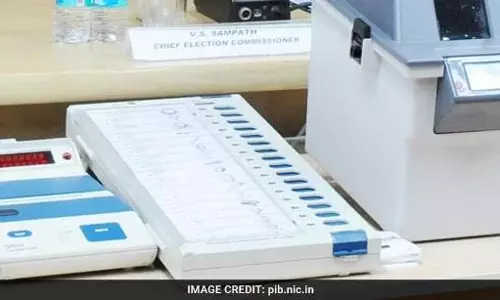
The Triumph of IIM-K Students
text_fieldsThe Indian Institute of Management (IIM-K) witnessed a unique kind of student strike.
The Institute had directed that for receiving the certificates at the convocation to be held in April, students had to give their names in Hindi, in addition to English. Non-Hindi speaking students protested that the decision was an unjustifiable imposition of Hindi and that they would accept the degree certificate only in English as done before, and if at all another language was to be used that had to be the mother-tongue. The authorities who had no choice but to yield to the demand, withdrew the decision to add Hindi in the certificate. This is not merely a matter of a degree certificate of an institution, and therefore the resistance of the students and its success deserve the general support and appreciation from the people.
Language being means of communication, and at the same time culture and history, the attempt to impose one language even bypassing mother-tongue is not that innocent or well-advised. It is high time Malayalam, Tamil, Bengali, and Odiya are treated as Indian languages as much as Hindi is. Even English has become a language of our own in India. But now even in Tamil Nadu which once was the scene of anti-Hindi agitations, the dominance of Hindi is strengthening. Last year, English portion on road signs were erased and replaced by Hindi. In the case of an application addressed to the Prime Minister's Office under Right to Information Act, the same was rejected on the grounds that it was written in Tamil. Then, State Bank of India, in reply to a complaint written in Tamil, asked the customer to write it in either English or Hindi. If such things happen even in Tamil Nadu, the less said the better about other states. Recall the instance in which an invite for a Central Government function in Odisha was printed only in Hindi, and the local MP, Thathagata Satpahy of the BJP wrote in Odiya declining the invitation. There was yet another recent incident: when a railway passenger from Maharashtra submitted a complaint in Marathi, he was advised that it had to be submitted in Hindi.
It is based on the wide propagation of the erroneous theory that Hindi was the national language that this thrusting of Hindi has been enjoying support right from the government. It may be recalled that when the three-language formula was implemented by many southern states, the Hindi-speaking states did not do that. The imposition of Hindi negates the linguistic divergence, cultural plurality and federalism of India. Although English and Hindi are used as medium of communication, it is a fact that in practice, for south Indians Hindi is more alien than English. And there are those who uphold Hindi in the name of patriotism too; but it can easily be seen as a strategy of overzealous patriotism having roots in northern India. Bihari, which is an indigenous language of India is perishing at the face of Hindi dominance. How can this be love of the country? And will it go with Indian plurality when so many regional languages perish decline and a uni-language culture develops?
The introduction of Devanagari numerals in new currency notes is a violation of the official language policy. In some important examinations such as JEE (Joint Entrance Examination), the medium allowed in addition to English is only Hindi, and in some places Gujarathi, and this is only one among several forms of discrimation. And is the insistence on not giving names in regional languages to central government schemes being implemented across the country patriotism or stubbornness? The over-emphasis on Hindi in the matter of services the government is bound to provide without discrimination, the bias in favour of Hindi is next to linguistic fascism. For even getting information in local languages onrailway tickets, agitations become necessary. It was only natural that the rationale of the prime minister who can speak in English made the Independence Day speech only in Hindi, was questioned.
Although Hindi is being imposed under the pretext of Indian nationalism, the underlying propensity for centralization of power and the mania for monolithical culture has been highlighed by many scholars. In India which has 122 main languages and 1600 minor languages, linguistic and cultural richness are facing a threat. When language discrimination is resorted to with the use of country's common resources, resistance becomes inevitable. It was in this platform that the triumph achieved by IIM-K students becomes significant.























